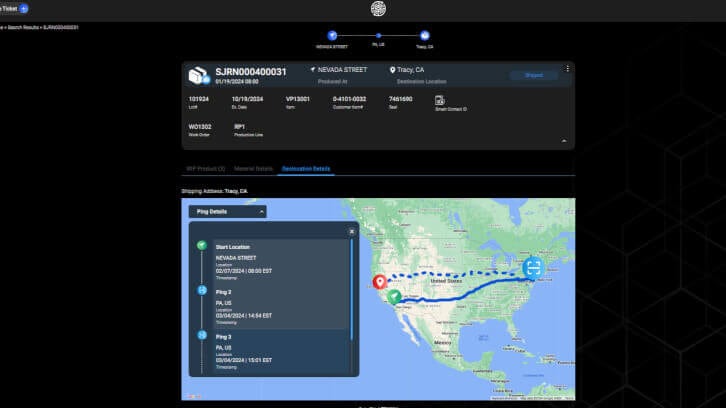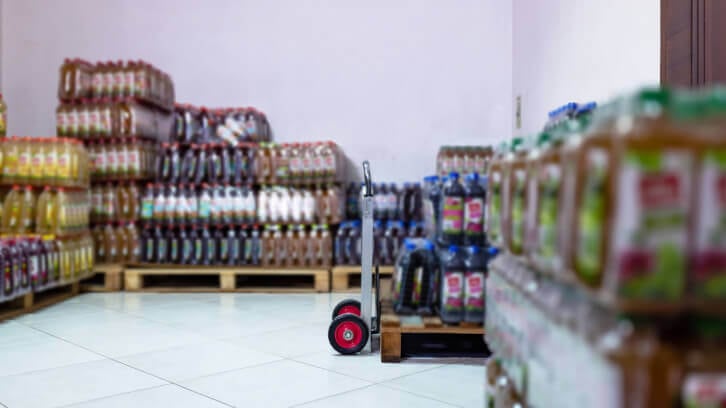Sojo Shield’s track and trace software platform uses geolocation and blockchain technologies to help identify compromised items, respond to food safety alerts and address product quality concerns through its automated data collection and analysis process during shipping and receiving.
Users scan QR codes generated by Sojo Shield which provides a real-time view of product information, pallet locations and searchable updates, reducing any potential delays between manufacturing facilities and retailers.

Prior to Sojo Shield’s technology, variety and multi-pack manufacturers relied on disjointed analog systems across the value chain, creating a cumbersome and inefficient process, Bar-Cohen said.
“You are just running around all the time doing inventory counts and cycle counts and trying to match up all of these various records that you have in non-integrated, separate systems,” he explained.
To solve these issues, Sojo Shield uses blockchain technology to transparently and securely track the status of each pallet, while providing a more cost-efficient system for multiple facilities and locations without the need for additional servers, Bar-Cohen explained.
Bar-Cohen remarked that blockchain works particularly well with variety packs because of its lower transaction volumes, avoiding lags on the blockchain public networks.
“If you’re running …five million transactions a second, for example, you can create a strain on the blockchain public networks; but the environment we are in, we’re talking 50-250,000 transactions a month. So [blockchain] lends itself to that type of operation,” Bar-Cohen explained.
Helping companies stay FSMA compliant
The platform helps both brands and retailers report on critical tracking events within 30 minutes that are in compliance with FDA’s Food Safety Modernization Act (FSMA) Food Traceability Rule (which goes into effect January 2026) to help prevent recalls for variety and multi-packs. The Food Traceability Rule requires brands to report on key data elements (quantity of food, location, date shipped, etc.) within 24 hours.
“In the multipack variety world, the hardest thing to do is to keep track of the individual flavors that are going into a variety pack … If you don’t have really good systems in place to keep track of those individual flavors—where they were manufactured, their expiration date, where they came from, who was running that line—… you may be blind to 40-50% of your volume that month or more, if you do not have good track and trace on that individual SKU,” Bar-Cohen explained.
Sojo also participates in ongoing mock recalls with its customers, which has improved the system’s efficiency in identifying problematic tracking events.
“When customers call us, we now have the ability while they are on the phone, within minutes or even seconds … to give us one or two or three parameters, like the name of the flavor, lot number, expiration date … and then we can immediately tell them [the status],” Bar-Cohen elaborated.
Future plans for Sojo Shield
Since most brands do not own their own manufacturing or transportation, Sojo Shield provides a dock-to-dock integration between the co-packer dock to the retailer dock, which provides value for Sojo’s customers, Bar-Cohen said.
Bar-Cohen shared that the next iteration of Sojo Shield will focus on compatible applications with more scanners, increasing user accessibility; in addition to the possibility of introducing site licenses and ongoing maintenance fees.
“If you are a Sojo customer and you want this enhanced level of transparency, track and trace and business intelligence tools and data, we are going to bundle it with the services that we are providing and charge you on a case basis,” Bar-Cohen added.



